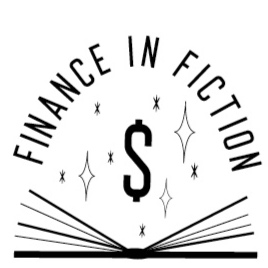Review: Albert
The savings and budgeting app Albert is one of the many we’ve seen come on the market lately. You’ve probably come across it on Instagram. A bow-tied money butler texts you tips on how to best manage your finances by connecting to your various financial accounts and analyzing that data. You complete “missions” to become more financially literate, such as setting up a budget, setting up a rainy day fund, and optimizing home expenses.
Butlers aren’t Free
I gave Albert a try on both the free and paid subscription platforms. On the free side, Albert is a clean interface that does little more than provide some interesting resources and a way to save a minimum of $5 a week. If there’s a way to adjust that to less than that, it wasn’t easy to find. I don’t like being locked into a minimum contribution to savings ($1 is ideal). Like many people, I already feel a sense of panic at being powerless to stop the flow of money, so any feature that takes away my control over my own cash leaves me grumpy. Yes, $5 is cheap – but for the millennial struggling to survive, a $5 minimum could be significant. Those days aren’t too far behind me (or perhaps they just left a huge scar), so I’m still conscious of that feeling. After all, an app is only as good as its inclusivity to all savers.
Texting Albert Genius.
Tip your Butler
To use the app as it is really advertised, you have to go with the paid subscription. You can pick your price from as low as $1, with a recommended price tag of $6 monthly. This is a cool feature but I did go with the suggested $6. On the paid side, you have access to Albert Genius, which allows you to communicate with a team of financial advisors that can discuss any financial questions you might have over text. Select a topic like Moving and have the Genius advisors review your options for deciding ideal rent points, down payments for home purchases, etc.
To test out the team, I texted Albert my “tentative” plans to move – with a monthly rental budget of $1,000, and the income and expense amounts reported through the app. This is a standard rent price for my area, and with my husband away for work, my nonfixed costs are similar to a single individual’s expenses. While the numbers calculated by Albert were not correct, this left me around $1,400 for the rest of the month after paying “rent.” This felt appropriate for this experiment and more on par with what the average user might report (Status is a good way to get a benchmark on where you are compared to your peers). This was around 4pm central time on a Monday. Tuesday at 3pm I received a text response: (paraphrased) “Thanks for your patience. We recommend spending no more than 30% of your post-tax income on housing. On average you have $1,410 remaining. You’ll need to decrease spending to afford $1,000 on rent. Have you tried a budget or spending plan?”
Okay. Um. One of the “missions” is to set up a budget and a spending plan when you start the app. So yes. Also, this standardized advice is sound, but not personalized to me – so what’s the point of you looking at my financial information? For the inexperienced individual who just wants a person to confirm they are making good budgeting choices, Albert’s Geniuses could be a helpful tool. For those who understand general money basics, it is a little disappointing.
Mission Impossible
Albert is set up in a way that is reminiscent of flash cards. Snippets of information about your financials are displayed per card, and you shuffle through them as you’d like. I didn’t find the data to be necessarily accurate (my $2,000 “shopping” bill for the month was an additional $1,500 debt payment and some groceries). The problem with this flashcard style is that while the interface looks clean, but is difficult to navigate to return to where you want or see a commonality between missions. Sure, it was easy to set up a budget, but near impossible to figure out how to re-examine that budget without starting from the beginning, and I wasn’t really sure how this budget was actually influencing anything.
While the idea of addressing your home expenses is great, I don’t need another app giving me a quote on my home or car insurance! It’s like paying Geico to give you a free quote and to hold onto a spare $20 for you. That might be the main problem – Albert feels less like a money butler and more like another insurance salesperson throwing random bits of information for you. Maybe the occasional tip will be helpful, but why pay for it?
Remember the South Park episode “Freemium isn’t Free?” Yea, think of it like that. The free side is barely worth downloading, and the paid side is barely worth paying for. There are better options with better bang for your buck out there, unless you really love the idea of texting your personal team of money Geniuses.
What’s my bottom line?
Albert is the epitome of “eh.” It has some things that some might like, but more might struggle to find what makes it stand out in a sea of financial apps. Having real humans available to discuss financial questions is nice, as is the pick-your-price option, but I’ll pass on this money butler. If you are truly inexperienced with general finances, you’d do better with a few books or blogs from the Reviews page – or a simple Google search. Grade: D
Disclaimer: Any products reviewed are done so as an anonymous consumer to provide transparent information about the experience. Any money made off of affiliate links are clearly stated, and do not influence the reviews in any way. No free products are accepted (with the exception of books). Honest, 100% bullshit-free reviews only!






